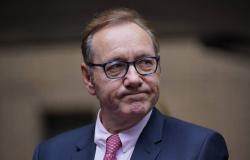Policy makers, doctors and scientists are currently paying a lot of attention to the declining vaccination rate, especially in connection with measles. Many of them see ‘disinformation on the internet’ as a reason for the loss of confidence in vaccines and authorities such as the RIVM.
But they confuse cause and effect: people do not lose confidence in institutions because of ‘disinformation’ on the Internet, people start looking for information on the Internet when they have lost confidence in institutions. This distinction is essential, because the solution is not to allow politicians and experts to spread more pro-vaccination views, but to restore trust in political and medical-scientific institutions.
About the author
Jonah Walk is a doctor in training as an internist and obtained his PhD in immunology and vaccine development in 2021.
This is a submitted contribution, which does not necessarily reflect the position of de Volkskrant. Read more about our policy regarding opinion pieces here.
Previous contributions to this discussion can be found at the bottom of this article.
The choice to forego (certain) vaccinations has always been made, for example based on religious beliefs or because of a different view of health. But in recent years I have been explaining the National Vaccination Program to a new group that has doubts: people who have lost their trust in the government and medical authorities. Due to an accumulation of affairs and the inability of government leaders to take responsibility, the authority of politicians has reached a low point.
Because vaccination policy and agencies such as the RIVM and the GGD are closely linked to them, this also has consequences for confidence in vaccines. This started earlier under the Rutte cabinet, which was plagued by affairs, but since the corona pandemic has gained momentum in recent years. And we can learn a lot from the mistakes made during corona.
Initially, both the effectiveness of corona vaccinations (for example against virus transmission) and their safety were greatly exaggerated by politicians and experts in the media. The communication came across as advertising, not as medical messages. People who feel that they were not fairly informed at the time – for example, the RIVM continued to repeat until the autumn of 2021 that the pandemic and measures would be over if enough people were vaccinated – will now logically wonder whether information about other vaccines Correct.
The Dutch have also seen that critical messages about corona vaccines have been removed from social media, including the honest stories of patients with side effects and substantively correct scientific writing. Who at the time got the idea that some government agencies were trying to hide something, is now taking negative pieces about vaccination much more seriously.
The concerns of people who already had doubts about corona vaccines have subsequently grown exponentially due to the corona admission ticket. They have experienced that the government has put pressure on their physical integrity, and it is difficult to describe how deeply their trust is then violated.
Perhaps the most lasting damage has been caused by the way society became polarized around the topic of vaccination. Politicians of all persuasions made substantive statements about corona vaccines. At the same time, even health care providers and scientists made increasingly strong statements about ‘unvaccinated people’, with proposals to seriously restrict their freedoms.
As a result, vaccination – which should always be a medical decision between doctor and patient – has become political. It will not be easy to regain the trust of this group of Dutch people.
It is partly related to the urgent need to improve the administrative culture in The Hague. But self-reflection and reform may also be needed within medical institutions. First of all, it is essential that the public trusts official information again.
Spend more time explaining the considerations surrounding vaccinations and be honest about what uncertainties there are instead of advertising. This way everyone can make an informed decision. Stop immediately cracking down on what is considered ‘misinformation’ online, make sure people know that nothing is being hidden from them. Rule out pressure and coercion in advance and, as doctors and scientists, offer clear contradiction when politicians call for this.
Let’s start talking to each other again, with respect and genuine curiosity for the points of view of others. And let’s start seeing vaccines again for what they are: smart medicines that can provide great benefits, instead of as a way to divide society in two.
Tags: Opinion Confidence vaccines requires honest authorities advertising pillars
-





